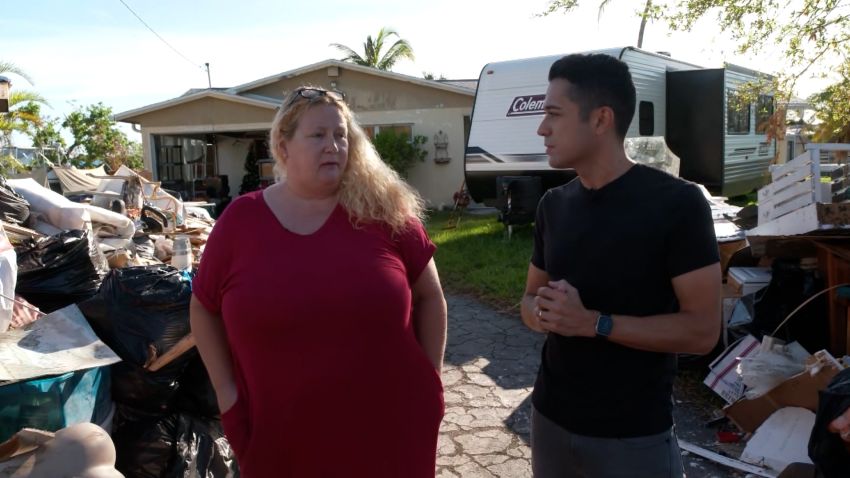A month after Hurricane Ian swept across Florida, Ciry Sosa and her family are still living in the Fort Myers Beach apartment where the dirty salt water rose up to 4 feet, destroying most of their belongings and leaving behind mold on the walls. They are sleeping on air mattresses and relying on donations of food, clothes and other essentials from neighbors and community groups.
After the storm passed, Sosa, 41, waited in line for three or four hours at a local library to apply for assistance from the Federal Emergency Management Agency, known as FEMA. She noted that she lives with her husband and teen son and explained what happened during the storm. About a week later, an inspector came to take a look.
But that’s the last she’s heard from the agency tasked with helping Americans cope with disasters. She hasn’t even received the $700 that FEMA doled out to many of her neighbors to help them with their immediate needs.
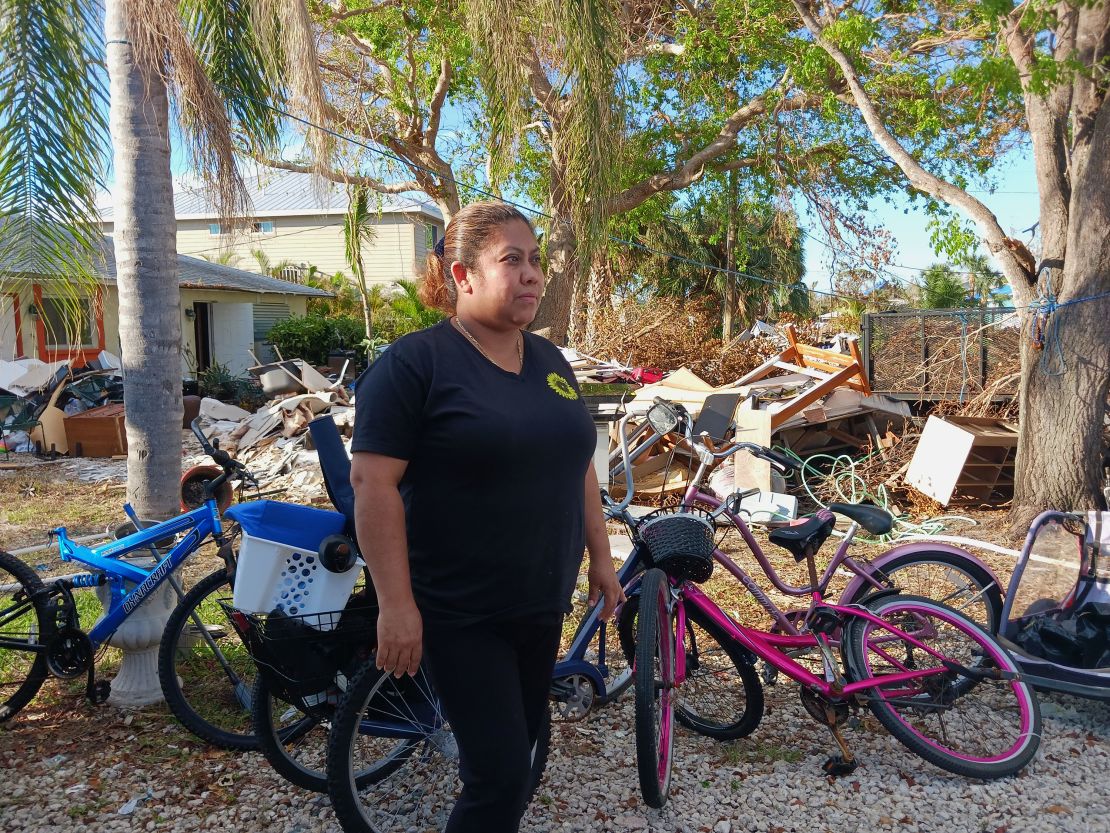
Meanwhile, the family can’t afford to stay in a hotel or rent a new apartment. And they are waiting to hear from their auto insurer about a payout for their 2005 Ford Explorer that also flooded.
“I understand they have a lot of work,” Sosa, who also has a dog and two birds, said of FEMA. “But we should have something already. We need money.”
A month after the Category 4 hurricane devastated parts of Florida’s west coast, residents are still trying to put their lives back together. FEMA assistance is critical for many of them.
Those affected by the storm tell CNN they have had different experiences dealing with the agency. All praised the FEMA workers for their kindness, but some Floridians received aid quickly, while others have been left waiting for weeks. CNN plans to chronicle their dealings with the agency over the next few months.
The mixed reviews are not new. FEMA has long been criticized for providing inequitable responses to hurricanes. The US Commission on Civil Rights last month published a report that recommended that the agency’s recovery and mitigation process focus on survivors with the greatest needs, particularly people of color and low-income residents, among others.
Hundreds of millions of dollars in FEMA aid
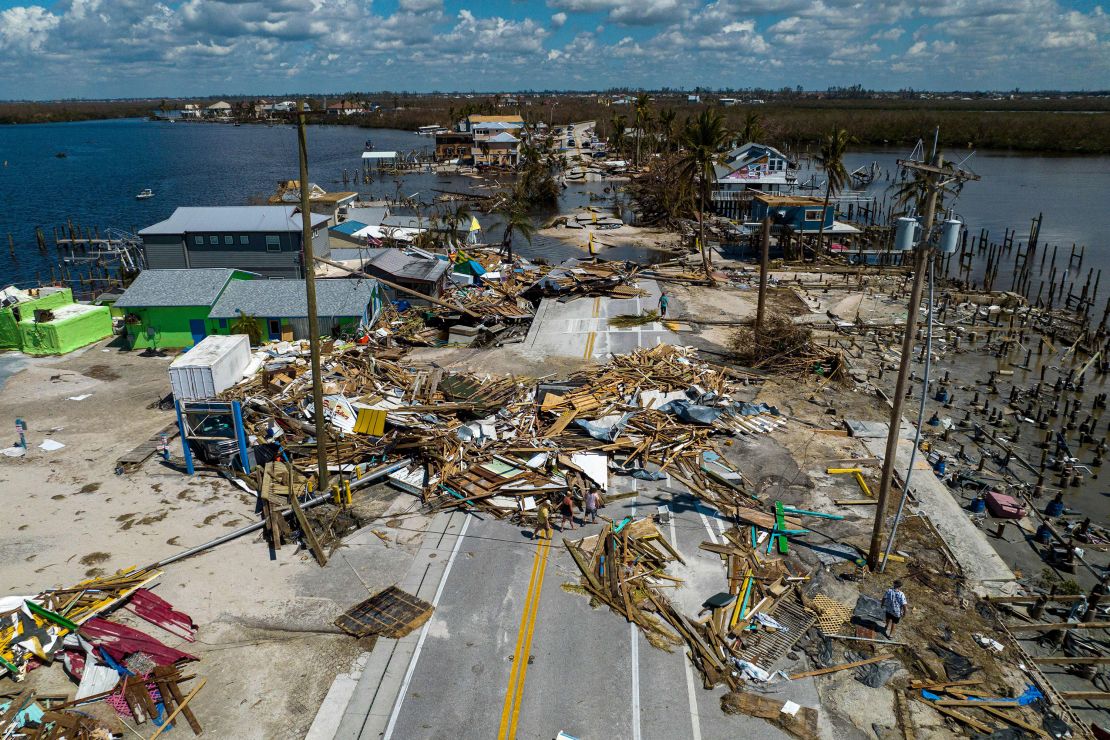
FEMA has provided $643 million in individual assistance to residents in 26 Florida counties as of Wednesday, the agency said. It’s operating 19 disaster recovery centers, where folks can learn about and sign up for aid, check the status of their applications and get help with FEMA notices they may have received, among other services. Interpretation services and translated materials are available.
Disaster survivor assistance specialists, who are going door to door in the affected neighborhoods, have interacted with more than 60,000 people, according to FEMA. Hundreds of inspectors have assessed the damage to more than 164,000 homes.
To receive help, homeowners must first verify their identity and ownership, as well as show whether they have insurance that could cover the damage. Then FEMA assesses the extent of the damage and whether it’s affected the owner’s ability to live safely in the home. The agency next determines how much it will award the homeowner based on the level of damage and average prices for materials and repairs in the local area.
FEMA is also providing a roof over the heads of more than 2,100 households, with a total of nearly 5,400 people, through the Transitional Sheltering Assistance Program, which allows FEMA to directly pay hotels and motels in Florida, Alabama and Georgia that provide emergency shelter to survivors.
And on Wednesday, the agency approved Florida’s request for direct temporary housing in four counties, providing travel trailers and larger manufactured housing units to survivors.
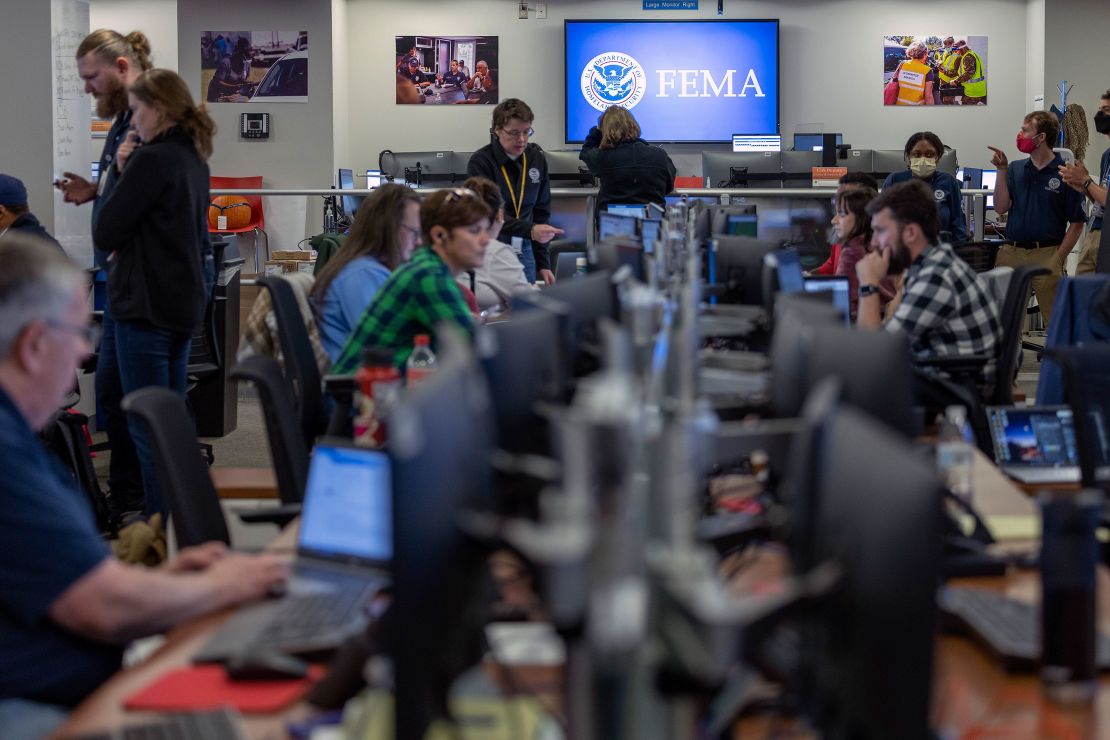
Survivors who feel they’ve been overlooked should make sure their application and answers are up to date, said Melissa Forbes, assistant administrator for recovery at FEMA. They can also call the help line – 800-621-3362 – to have a representative guide them through the process or let them know what else they may need to submit.
Aware that some survivors may have trouble navigating the system, FEMA is setting up an enhanced services program to provide additional assistance to some applicants who have been deemed ineligible but could actually qualify for aid. It may entail an inspector coming to them again or a call center agent getting them over any hurdles.
“So that the onus is really not placed on them, but rather, we’re sort of helping them manage their way through the program itself,” said Forbes, who noted that the agency has “some room to grow to be better able to support renters.”
Some Floridians receive help quickly, while others wait
Francie Pucin is thrilled with FEMA, which has already provided her with funds for the damage to her Fort Myers home. She had finished renovating it two weeks before the storm surge filled it to the ceiling with water, rendering it uninhabitable.
The 55-year-old also received $700 for immediate needs and was awarded $2,900 for temporary housing for two months for herself and her two cats.
Pucin, who moved to Florida from the Chicago area last year, has temporarily relocated to her parents’ condo in Pompano Beach, Florida. When she regained access to the internet, she spent 20 minutes applying for FEMA aid online, which she said was a very easy process. A few days later, she was puzzled by a notice in her account that said her claim was pending, but she couldn’t get through when she called. Then she tried at 7 a.m., spoke to a representative and resolved the issue quickly.
About 10 days after she applied, she happened to be at the house when the inspector called. He swung by later that day.
Though she grabbed the title documents from her home before fleeing, she didn’t need them because the inspector looked up her record on the county tax assessor’s website. Within two days, the funds were in her bank account.
“It’s really humbling,” said Pucin, a retired insurance agent. “I thought ‘Wow, what an amazing country we live in.’ I hope they are there for everyone like they were for me.”
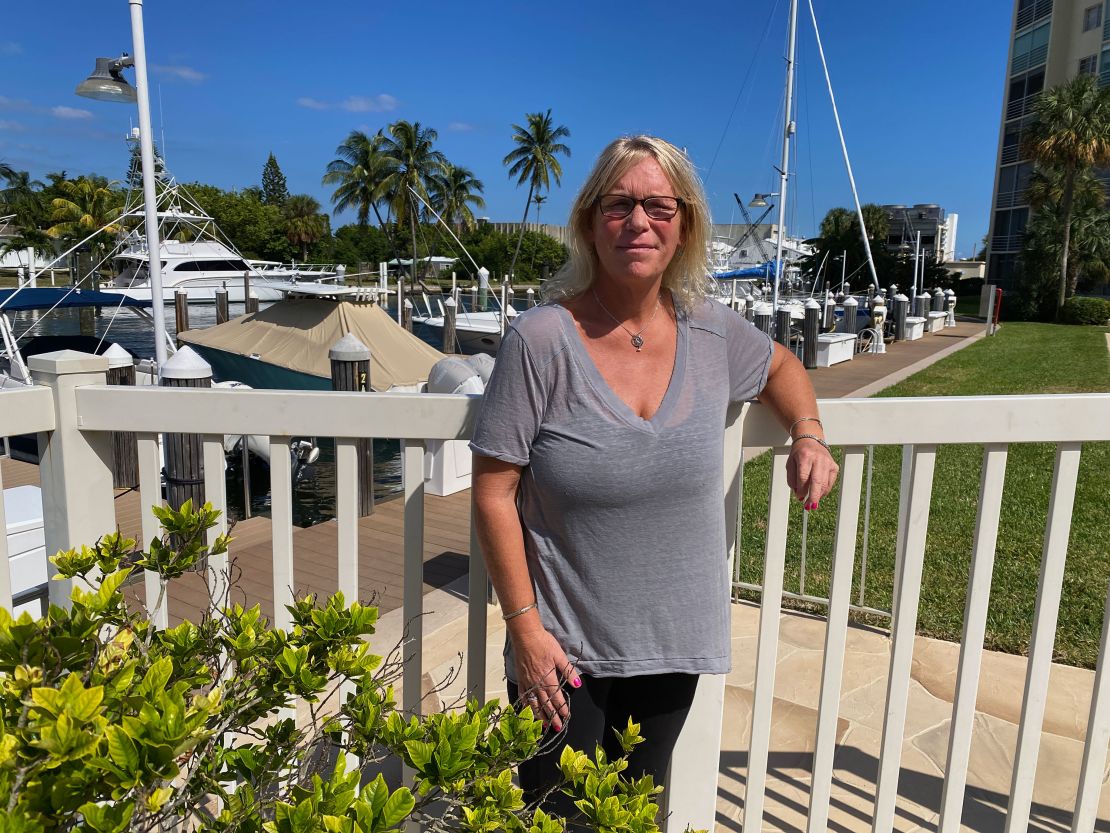
Though she hopes to restore her home, Pucin has heard rumors that Lee County may not allow residents of Palmetto Palms RV Resort to rebuild since it is just a few miles from the gulf.
Meanwhile, Pucin is still waiting to hear from FEMA about receiving a trailer to live in while she determines what to do with her home. Since she has to vacate her parents’ place in mid-November, she expects to need the agency’s rental assistance because she doesn’t think she’ll receive the trailer until early next year.
One remaining issue: She is weighing whether to file a claim with FEMA for the contents of her home. But an agency representative told her she first has to apply for a loan from the Small Business Administration, which offers low-interest loans to homeowners and renters in declared disaster areas, and get rejected. Then, she can turn to FEMA for funds.
Other Floridians, however, are still waiting to receive any help from FEMA.
If Karen Watmough doesn’t get FEMA funds soon, she may have to move back to Tennessee to live with her dad. About to turn 60, she doesn’t relish the idea.
Watmough had lived on a sailboat at a Fort Myers Beach marina since 2016. She happened to be on vacation further north in Florida when Ian hit. It took three days for her friends to find the boat, Sahara Wind, named after the Saharan Air Layer, which has been shown to suppress hurricane activity. It ended up on land, around the corner from the marina, under two shrimp boats.
Watmough, who worked as a housekeeper at a beach resort that flooded, called FEMA in early October and got through right away. The representative opened a claim for her and said someone would be in touch to look at the boat.
On October 20, the inspector came, took whatever pictures he could and declared it a total loss. He was fantastic, Watmough said, helping her recall the items she had on board. But he told her he didn’t have a line item for boats that were primary residences. So he wrote “other” and the dimensions, 36-feet long by 14-feet wide.
Now, she is expecting to hear any day what assistance she will receive from the agency. Watmough, who canceled her boater’s insurance in August because the annual premium quadrupled to $1,000, hopes to use it to buy a camper or trailer.
“Things are still so up in the air until I know what FEMA does,” said Watmough, who is living temporarily with a friend in Fort Myers. “It’s pretty much one day at a time.”
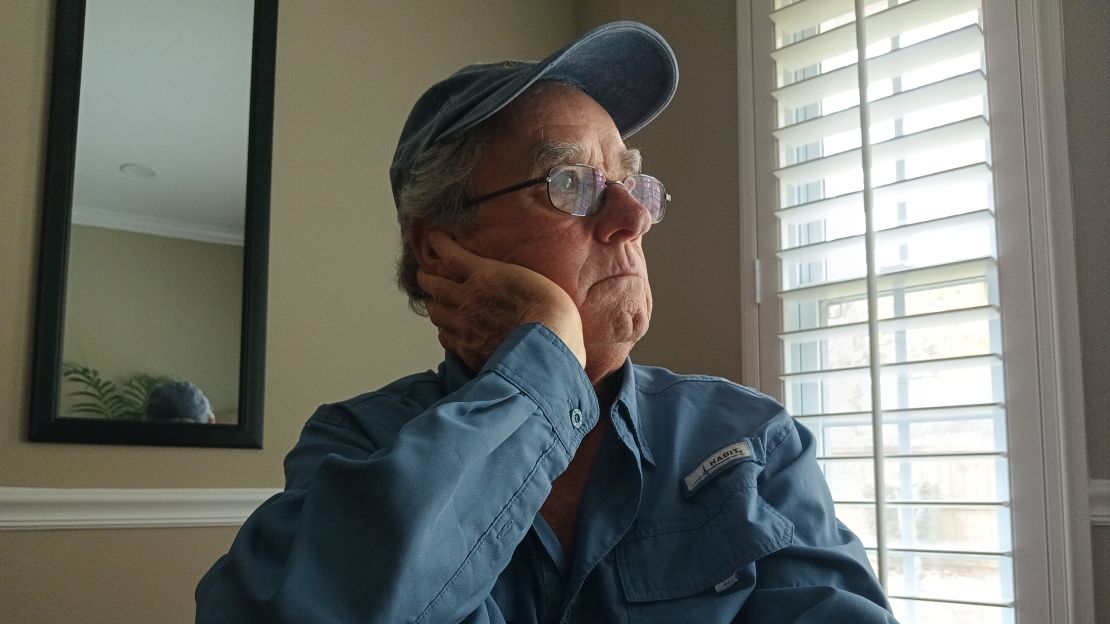
Meanwhile, her friend Robert Heather has had more trouble with his FEMA claim for the loss of his first-floor rental apartment in Fort Myers Beach, where he nearly drowned until his neighbors rescued him through a window. He then went to stay with a friend in Nashville, where he had to buy new clothes since he lost virtually all his belongings, as well as his car, in the hurricane.
About 10 days after filing his application, he called and learned his claim had been closed because he wasn’t on site for an inspection and hadn’t designated anyone as his representative. But he’s also wondering why he didn’t receive the $700 payment for his immediate needs since the liquor store and inn where he held part-time jobs are both closed due to storm damage.
Because he’s not confident he’ll ever receive any money from FEMA, he’s not rushing to return and reopen the claim. He figures he’ll get to it in early November.
“I have no faith in them whatsoever,” said Heather, 73. He hopes to get a loan from his bank to buy a trailer to live in when he gets back to Fort Myers Beach since his apartment won’t be habitable for a year.
CNN’s Christina Maxouris and Rene Marsh contributed to this report.

